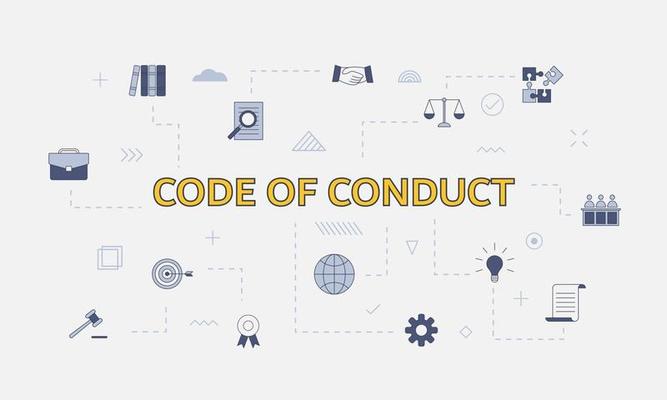Discussions around workplace politics can be a minefield. On one hand, they can enrich employees’ opinions, allow for meaningful discussion, and provide different perspectives. However, they also have the potential to divide, create tension, reduce productivity, and ultimately lead to confrontations at work.
As many topics are underpinned by the idea that political discussions are intertwined with social and economic discussions, avoiding it altogether may feel unrealistic. Rather than outright banning political discussions, organizations should practice good management.
The best way to manage sensitivity around political discourse and engage employees in a safe and inclusive space is to establish required procedures, commitment, and guidelines that promote structure for political discourse and promote respectful practice around discourse, ultimately providing longevity for the associated questions and answers around workplace politics.
Being well prepared for workplace politics is an excellent opportunity for employees to engage in critical conversations that can foster active thinking. Will a political dialogue build inclusiveness and a sense of belonging while following acceptable workplace behaviors and office etiquette? Will political discussions deepen relationships and foster friendships amongst coworkers?
Ultimately, it’s about managing free expression as it relates to being professional and mutually protective of a cohesive work environment.
Let’s consider how much employees engage in political discourse at work, what promotes employees to engage in political discourse, what challenges political discourse creates, and best practices for managers when managing employees’ political options.
Table of Contents
What Do The Statistics Say?
In one report, almost half of US workers noted having discussed political topics with a coworker in the past month, which is likely higher given the latest presidential updates.
Of course, full-time on-site employees have these encounters about twice as frequently (54%) as remote employees (28%). Hybrid employees (48%) report having these encounters almost as frequently as on-site employees. Politics at work is much more likely for employees in occupations with a male-dominant labor force (52%) than a female-dominant labor force (42%) and in fields with gender equality (43%).
Furthermore, employees are more likely to report having political conversations in industries with conservative-leaning personnel (60%) than in those with liberal-leaning people (48%).
What Are the Benefits of Discussing Politics at Work?
Despite their controversial nature, political discussions in the workplace do have their advantages.
Enhances Shared Understanding
Discussing your ideas and beliefs about any political topic gives you a better sense of your team’s values and perspectives. This can lead to more meaningful bonds and relationships, which can, in turn, lead to higher employee satisfaction and productivity.
Builds Community
When you discuss the political landscape with co-workers, you can create a sense of belonging and connection. This can particularly help new employees or others who may feel isolated. Political conversations create the possibility, for employees, to work in settings where they’ll openly share their opinions. When employees don’t feel like they need to hide important aspects of who they are, they can truly feel authentic and like they belong.
An Opportunity to Inform and Educate
If you have an understanding of the current context and issues, you may help inform and educate your peers who do not. This has the potential to help you build a more informed and engaged workforce.
Encourages Civic Engagement
Discussing politics and current events can enhance awareness, encourage action, and encourage workers to be engaged at the community level. It can transform a workplace into an environment that encourages participation in the democratic process and a consciousness of social issues.
Improves Critical Thinking
Having conversations about political beliefs can encourage critical thinking and problem-solving. By feeling comfortable exploring various perspectives, employees having civil and informed conversations may find they are more capable of dealing with difficult issues.
Problems of Discussing Politics at Work
It should not come as a shock, but whenever public issues get mixed up with work issues, things can get ugly. In other situations, like social contexts, we can disengage from the conversation.
In the workplace, however, employees will still have to work together after the conversation ends. That makes resolving the conflict that resulted from the conversation harder to avoid/work on.
Affects Teamwork and Productivity
Politics can be very personal, often intending to reflect our values. Workplace harmony can be lost when a public debate transitions into personal attacks or resentment.
Political conversations can cause individuals to spend too much time discussing politics and take them away from the team objectives. Political discussions may not be contained and can create division in the teams and damage their working environment. The inciting discussions can also create tensions that negatively impact productivity and lead to a hostile working environment.
Power Disparities
It may be considered unprofessional to discuss politics at work. If you are in a position of authority, this is particularly true. Strongly opinionated leaders may have even more difficulty keeping those conversations civil and on the low. Strain, conflict, and potential power differentials could occur with these opinions in your organization.
Risk of Harassment & Discrimination
Sometimes political talk turns into areas that strike a protected characteristic (e.g., race, religion, or personal beliefs). This could increase the risk of harassment or discrimination claims, making it difficult for HR to go through these sensitive matters carefully.
Emotional Consequences
One should not undervalue the emotional toll that discussing politics at work can have. Political discourse has the power to elicit powerful emotions in the workplace, ranging from stress and worry to rage and fury. Workers may get defensive or withdrawn if they believe their political views are being attacked. Burnout, low morale, and diminished job satisfaction can result from this emotional pressure.

An employee who feels excluded, for instance, because their political views diverge from those of the majority, may begin to feel alone. Their general well-being and productivity at work may suffer as a result of this estrangement. In more severe situations, it may result in mental health problems, which would make things more difficult at work.
The Legal Side
It is also important to be aware of the legal consequences of political speech in the workplace. While free speech is a fundamental right, it is limited in the workplace. Some types of political speech may be restricted by federal and state statutes to stop harassment and allow a civil workplace. To stay on the right side of the law and protect employees’ freedom of speech, employers need to recognize these laws.
Navigating free speech in the workplace is complicated, though. For example, while the First Amendment protects people from government censorship, private businesses are not always protected by the First Amendment. This means that employers have some latitude to make rules limiting workplace politics to maintain a peaceful and productive workplace.
Here are some of the scenarios where an employer can fire you for discussing politics at work:
- Your political discourse permeates protected concerted activity talk.
- A certain protected class of people is impacted by your actions.
- A public organization, like a city, county, or school system, is your employer.
Positive Approaches to Navigating Political Conversations at Work
Avoiding political discussions at work is not always realistic. Instead, companies should develop proactive strategies to keep conversations respectful, productive, and non-disruptive. Here are some positive approaches for effectively managing political discussions in the workplace.
Code of Conduct
Having clear standards is the initial step in creating a respectful workplace. Employers can remind staff that while it is appropriate to discuss politics at work, they should be considerate of others and their differing opinions. It is useful to establish standards of acceptable behavior that specify courtesy while making it very clear that rude words or actions will not be tolerated.
Employers ought to have explicit policies outlining what constitutes appropriate political discourse. Civility and respect should be emphasized in these rules. For instance, “Discuss to understand, not to convince” could be a straightforward guideline. Encourage staff members to use constructive dispute-resolution techniques rather than insulting or offensive words.

Problems can be avoided before they start by including respect for diversity and inclusion in all corporate rules. By creating an atmosphere where diversity of thought is valued just as highly as other forms of diversity, companies can enhance their culture and support a more engaged and productive workforce.
Legal advice should be considered by employers when creating this policy to make sure it complies with all applicable laws and respects the political affiliation of employees. Employees can identify their own prejudices and gain knowledge by attending workshops or training sessions on communication techniques and cognitive biases.
Structured Discussions and Interventions
A plan to control and defuse tensions is crucial when political disputes emerge. Encouraging staff to concentrate on facts rather than views is one practical strategy. This keeps the conversations constructive rather than combative. Moreover, managers must be taught to spot the warning signs of heated arguments and intervene quickly to moderate or refocus the discussion.
Conflicts can also be avoided by establishing areas where workers can have regulated, structured discussions about politics. Regular forums or roundtable talks with explicit rules of engagement, for instance, provide for regulated interaction and lessen the likelihood that unstructured arguments may get out of hand during working hours.
Supporting workers who might feel excluded or singled out due to their political views or any other protected trait is also essential. A company’s dedication to a respectful workplace is reinforced by offering clear avenues for reporting unacceptable behavior and making sure those channels are efficient and accessible.
External Help
Internal resources might not always be enough to settle disputes that result from political debates. You might have to look for outside assistance if political discussions are seriously disrupting things or resulting in harassment accusations.

A professional mediator or consultant can offer the unbiased viewpoint that may be required to settle long-standing disputes. These experts can provide workshops and dispute resolution training that enhance communication skills within the current workforce, enabling everyone to remain polite and involved while having different political opinions.
HR departments may make sure that corporate policies continue to be in line with new laws and changes in social norms by staying up to date on legal developments and seeking advice from outside legal experts.
You Decide: Good or Bad?
Remember, the goal should not be to put an end to political discussions altogether but to manage them so that they don’t disrupt the workplace. By encouraging an environment of open dialogue grounded in respect and understanding, employers and employees can navigate the tricky waters of workplace politics effectively. When handled thoughtfully, these discussions can even strengthen workplace relationships, promote critical thinking, and contribute to a culture of inclusivity, turning potential conflict into an opportunity for growth.
Have a great idea? Let EvolveDash bring it to life! We specialize in empowering businesses with innovative digital solutions. We create custom mobile apps and build user-friendly websites, providing tailored solutions to meet your needs.
With over 100 satisfied clients and 450 successful projects, our team has the expertise needed to help your business stand out in a competitive market. Reach out to us today!
FAQs
Should political discussions be allowed in the workplace?
While banning them may seem like an easy solution, allowing structured, respectful discussions can foster inclusivity and critical thinking. The key is setting boundaries to prevent disruptions.
How can companies prevent political discussions from becoming divisive?
Employers can establish clear guidelines, encourage fact-based discussions, and train managers to intervene when conversations become heated.
What should employees do if they feel uncomfortable with workplace political discussions?
Employees should feel empowered to disengage from conversations they find uncomfortable and report any discussions that create a hostile work environment.
Can discussing politics at work improve team dynamics?
When managed properly, political discussions can encourage diverse perspectives and open-mindedness, ultimately fostering stronger workplace relationships.
What are the risks of allowing political discussions at work?
If left unchecked, political debates can lead to workplace tension, strained relationships, and even legal risks if they violate anti-discrimination policies.



















